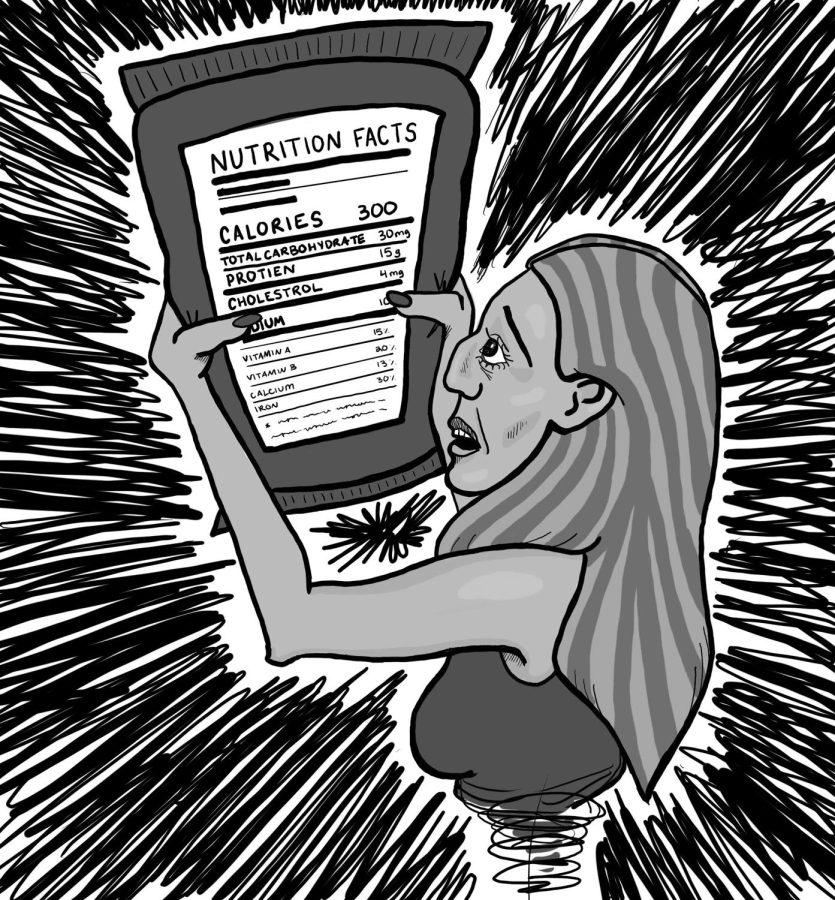OPINION: It’s hard to recover from an eating disorder
April 29, 2023
When I was 14, my eating disorder started.
I was checking the back of every package of food. I was counting every calorie that entered my body. I was scrolling on Tumblr, seeing every girl with a thin body bragging about only eating 300 calories and crying because I just wanted to look like them. I was forcing myself into a state of hunger to look like those girls, and when I couldn’t hold it back and binged, I was sitting on the floor of my bathroom, fingers down my throat, and tears down my face.
I’m 19 now, and I wish I could say I’m fully recovered. I wish I could say that there was some happy ending of me growing out of that mindset. But the truth is, you can’t exactly “fully recover” from an eating disorder.
Every time I go to a restaurant, and I see the calorie number beside the order, I can’t help but flinch. When I eat too much, I can’t help the thoughts that linger about sitting on the bathroom floor of my dorm hall.
Every little thing has the potential to kick me into that old mindset of being the scared little freshman in high school.
I look back at pictures of myself during that time, and I wish I could say I feel happy it’s over. But it’s not over because when I look at those photos, this small voice in the back of my mind can’t help but whisper that I should go back to that time. The voice tells me I need to relapse because even if I wasn’t happy, I was thinner.
And the sad truth is, that small voice will never go away. It’ll be there for the rest of my life, taunting me. It will always be there, lingering like some childhood nightmare I just can’t shake.
That’s why I’ve never liked the word recovery when it comes to my eating disorder. Because yes, technically, I’m considered recovered. But this doesn’t feel like recovered.
Using the word “recovery” feels like a lie because it doesn’t feel like that in the slightest. If I recovered, I wouldn’t easily be pushed into a full relapse resulting in weeks or months of the same agonizing emotional and physical turmoil that was there at 14.
That part of me, as I have learned, will always be there. I’ll never have that feeling of being “fully recovered.” And even if it sucks, I’ve come to accept it. I’ve learned to cope with it.
Most of the time, I’m okay– great, even– but that little voice will always be there holding me back from having that “fully recovered” sense of euphoria.









